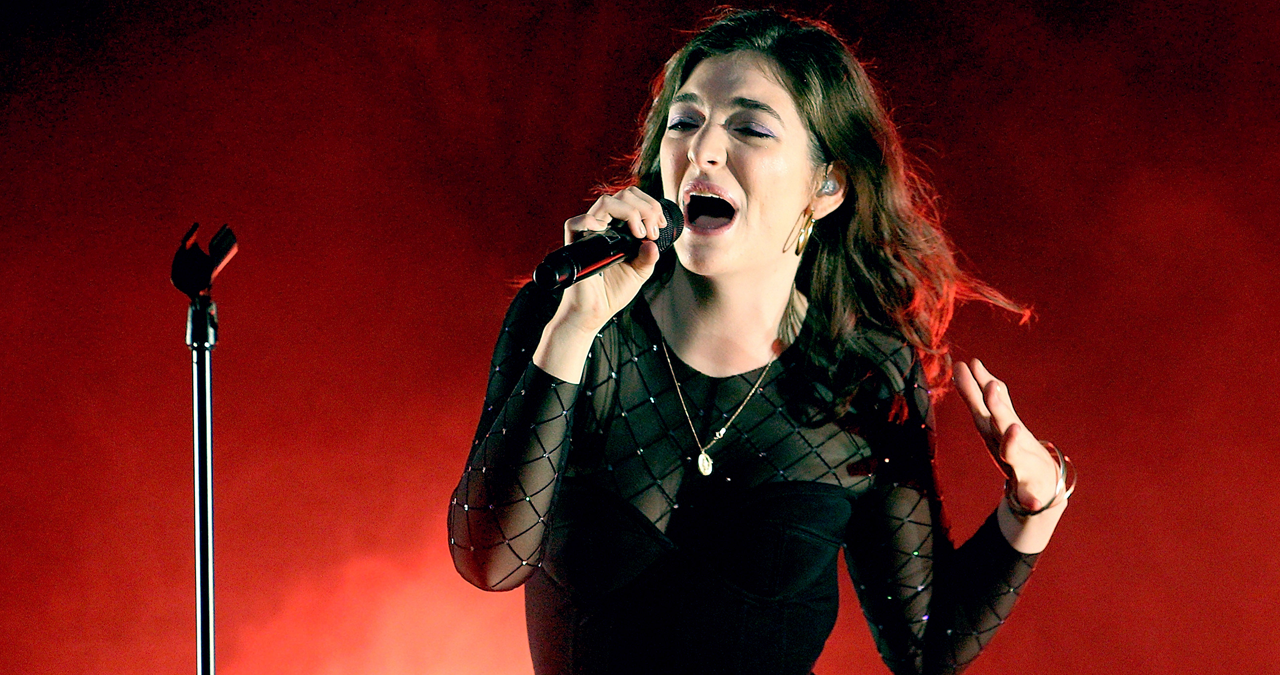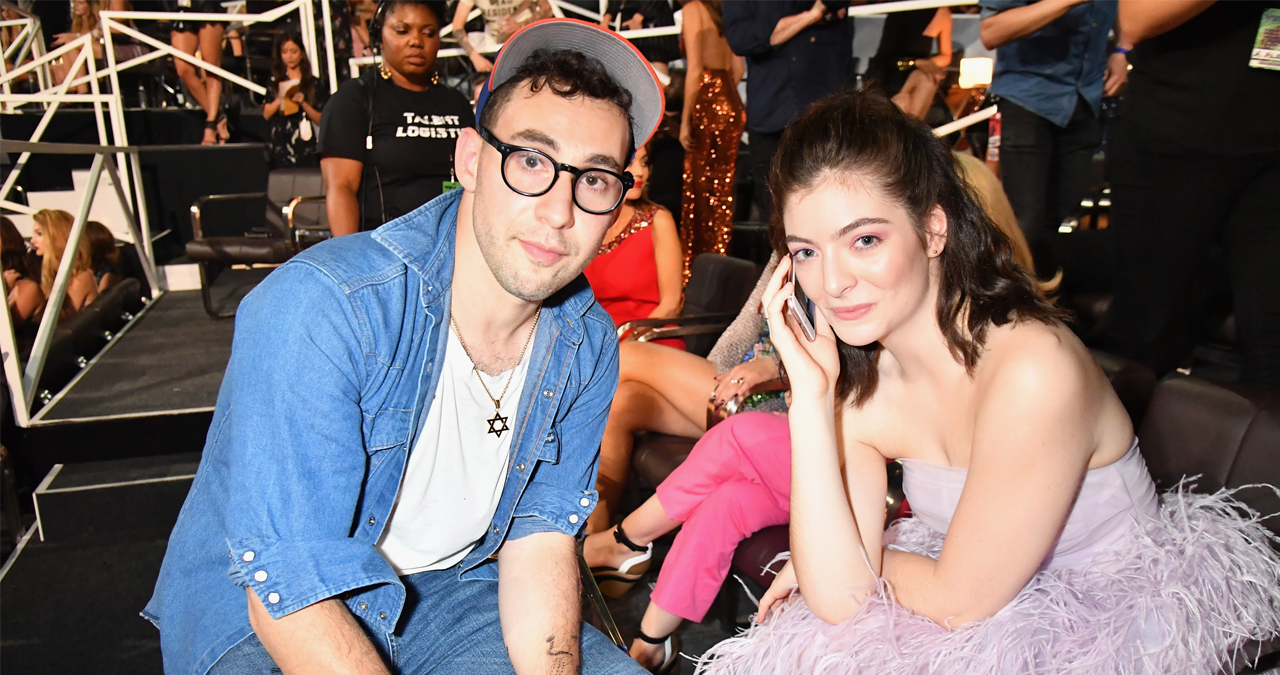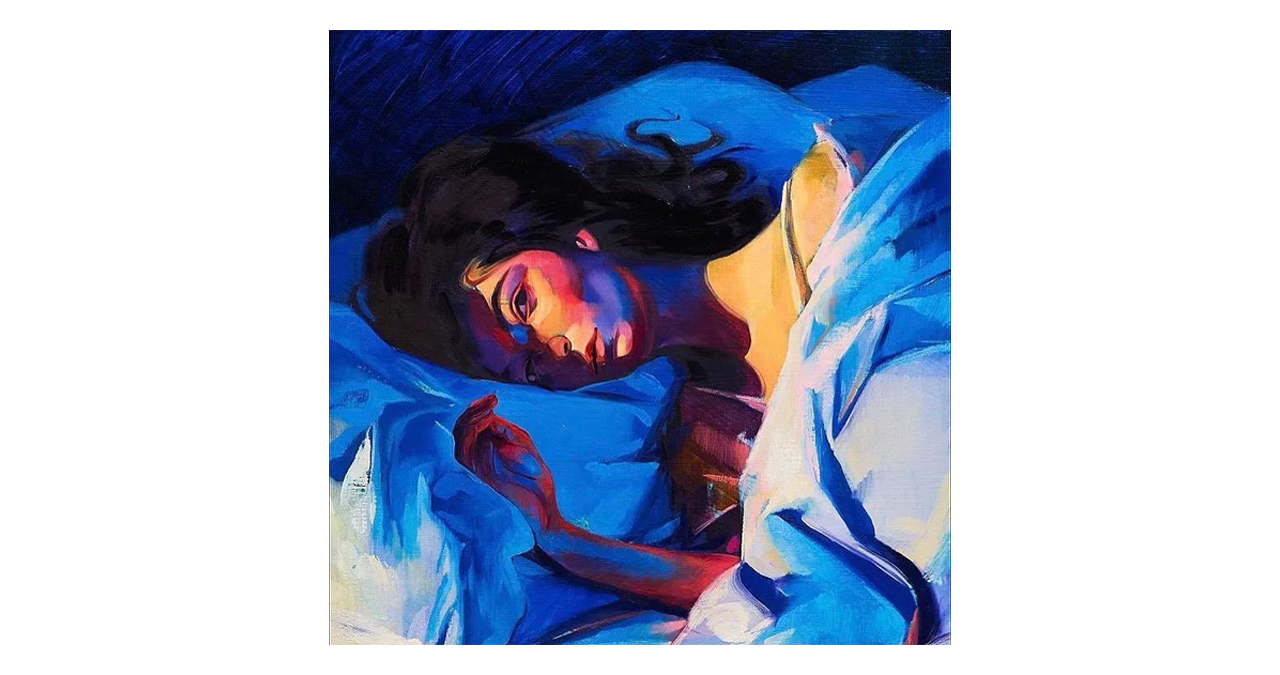“I was like - there has to be a different way to express how I’m feeling”: How Lorde established herself as Bowie's creative heir with her weirdest and most brilliant single
Co-written with Jack Antonoff, the first taste of Lorde’s modern classic Melodrama was stacked with inspired choices

Once dubbed the future of music by arch-visionary David Bowie, Lorde has continued to follow a similarly adventurous trajectory as her late hero.
First emerging onto the world stage with the divine single Royals in 2013, the New Zealand-born Lorde - real name Ella Yelich-O'Connor - followed up its explosive success with an equally superlative debut album, Pure Heroine.
That first album revealed Lorde’s penchant for raw and unflinching lyrical honesty, married to a rich tapestry of music infused with a breadth of influences.
Pure Heroine would have been a standout piece of work from a seasoned artist. For Lorde to release it as her debut - at the then-astoundingly young age of 16 - was extraordinary.
But the sudden jolt to global mega-star status needed some adjusting to.
Retreating from the spotlight, Lorde took a breath before making her next, heavily anticipated, move.
It was a move that proved to be worth the wait. On the luminous second album, Melodrama. Lorde expanded her sonic universe via some spellbinding songwriting - and unpredictable production choices.
This evolution was exemplified by Melodrama's lead single Green Light.
Musically lurching from desolate piano to one of the most euphoric choruses ever committed to tape - via an unhinged pre-chorus - Green Light was a blinder.
In the same vein as her late guru David Bowie's most groundbreaking work, the audacious and weird single was a signifier that, as Bowie foresaw, the sound of tomorrow had finally arrived.
The Song: Lorde - Green Light
The Magic Moments: The track's salvo of sudden gear-switches, including the fast-paced vocal delivery at 0:33, and the rave-style bright piano at 0:48.
Though the writing process for Pure Heroine’s follow-up had begun almost as soon as that debut had hit shelves, it would take a further four years until Melodrama came to fruition.
A gig curating the soundtrack for the film The Hunger Games: Mockingjay - Part 1, plus a Disclosure collaboration, Magnets, in 2015 had sidetracked the album’s development.
Want all the hottest music and gear news, reviews, deals, features and more, direct to your inbox? Sign up here.
Another hold-up was Lorde’s choice to remain as far from the public view as possible - and embark on a period of travelling.
When the time came to finally lock down her second album, Lorde wanted to widen her scope even further and sought a fresh creative foil to help achieve her aims.
Jack Antonoff, fresh from his first collaboration with Taylor Swift on her 2014 classic 1989 (and co-writer of Grammy-winning global mega-hit We Are Young), seemed an adroit choice as musical partner. He eagerly teamed-up with Lorde and Pure Heroine's co-architect and co-producer Joel Little.
Antonoff and Lorde gelled from the off. “I was basically speed-dating different producers and songwriters in LA and hating it,” Lorde told The Spinoff. “And then I walked into a room with [Jack Antonoff] and just felt like home. I was like, ‘Oh, yes. I want to be around you as long as I can and as much as possible.’ We were just obsessed with each other.”
Decamping to Antonoff’s Brooklyn home studio, the development of the record began in earnest. "We worked out of the house for the better part of a year, in this tiny little room covered in bizarre animal wall paper," Lorde was quoted as saying by the BBC.
A major shadow over Lorde’s songwriting at the time was her recent breakup with boyfriend of three years, James Lowe. Resultantly, many of her new songs were haunted by the emotional heft of the separation - and the hurricane of conflicted feelings of resentment and longing that came in the aftermath.
Channelling this turbulence, Lorde decided that Melodrama should follow a loose concept of a house party - attended by various different couples each at various stages of a relationship.

The mood of Lorde’s new tranche of material oscillated between the downcast and despondent (Liability, Writer in the Dark) to the self-assured and downright exuberant (Homemade Dynamite, Sober).
But it was the very first track penned for the record, Green Light (originally known as ‘Very First Green Light’) that set the record’s prevailing theme - and tightly brought Lorde’s own, very real, heartbreak to the fore.
“The song is actually about a heartbreak. And it’s not something that I really am used to writing about. It took me a while to be able to figure out how to write about that. It was my first major heartbreak.” Lorde later said of Green Light to Zane Lowe on Apple Music's Beats 1 Radio.
The song's busy arrangement took a much longer period of time to settle into place. A key component of the song’s mix was inspired after attending a Florence and the Machine show. Lorde was overawed at the dramatic approach to piano playing she witnessed that night.
“[Florence’s] player did this big, kind of jangly movement with her hands on the piano, and it was literally the physicality of that movement that became the way Jack played that," Lorde told Tavi Gevinson's Rookie podcast.
Lorde sought to express her emotional upheaval in more unrestricted musical language than she had previously; "I always want to run toward the thing that feels challenging and scary and exciting, and that didn’t feel like a drum beat and a vocal anymore,” Lorde told Spinoff. “It really felt like there’d been an excess of that type of [standard pop] music, which I am happy for as someone who’s in the camp of minimalism, but also I was like - there has to be a different way to express how I’m feeling."

The track began with her dry vocal front and centre in the mix. Her vocal melody was walled-in by a trio of almost oppressive piano chords. Cycling through an F#m, A and D loop, the piano set a suitably desolate mood. Selective and creative vocal effects (such as the faintly delayed echo of the word ‘liar’) emphasised Lorde's gnawing torment.
As Lorde finished her resentful, ex-directed lyric, the song shifted into the first of its pre-chorus parts.
Though this next section starts in a similar vein to the verse, the unexpected introduction of additional, syncopated (and multitracked) vocals, sang with a near-maniacal intensity, slid the song out of the familiar realm of the heartbroken torch-song and into something entirely alien…
Well, these great whites, they have big teeth
(Hope they bite you
Thought you said that you would always be in love.)
It was a quirky choice - but the rapid delirium of this part of the arrangement singularly expressed Lorde's bitterness. It conjured her anarchic inner voice, expressing the nagging doubts - and a simmering (and lyrically amusing) vengeful streak.
Green Light's pre-chorus proper presented an even more blunt switch-up, with the unanticipated addition of bright - almost 90s' rave-like - piano chords.
It was contrast a million light years from the verse’s reverb-soaked piano. Landing listeners into a new location. This ebullient (yet still anger-fuelled) energy built and built until the eventual and rapturous release of the chorus.
Amidst the punchy throb of the kick, bubbles of electropop synth arpeggios and 3am-in-the-club euphoria, Lorde’s main vocal hook shaped itself around a lyric where she expressed a wish to ‘get her things’ and let go - yet the upset caused by the breakup had left an enduring emotional scar.

The chorus refrain, ‘I’m waiting for it, that green light, I want it’ served as a metaphor for wanting to put her figurative foot down and move on from the pain of this aborted romance. But it might be a long wait for those lights to change.
It was a theme resonant with anyone who had ever faced rejection.
Lorde presented a nuanced narrative, and was truthful about her own contradictory inner-landscape.
There are no easy answers to be found in hollow nights out or one-night stands, Lorde implies - not when your heart has been shattered.
The music and arrangement was as engaging as its theme. In particular is the meshing of a series of elements beginning at 1:50, which form a supporting layer underneath Lorde’s vocals. This blurred assortment of delicately re-pitched synths, bells and ‘things we could hit’ was later dubbed ‘The Forrest’.
“I was like, ‘how come this thing is coming out so joyous sounding?’”, Lorde told Zane Lowe on his Beats 1 show. “And I realised this is that drunk girl at the party dancing around crying about her ex-boyfriend who everyone thinks is a mess. That’s her tonight and tomorrow she starts to rebuild. And that’s the song for me.”
Released as Melodrama’s first single on March 2nd 2017, Green Light was met with rapt acclaim from both fans and critics alike.
Though its hooks were strong, Green Light was a singularly peculiar piece of experimental, (almost prog-like) pop. It initially landed on the US Billboard top 100 at the very bottom of the chart, yet before long - once its hooks got firmly rooted - Green Light stormed upward to number 19. One of the quickest ascensions in pop single history.
"It's very different, and kinda unexpected. It's complex and funny and sad and joyous and it'll make you DANCE,” Lorde explained to her devoted fanbase on Twitter.
As it transpired, Green Light was only the first taste of an album that would later be hailed as a modern classic. Melodrama became a critically venerated and heavily garlanded release. It announced to the world that Lorde had fully emerged as a creative force to be reckoned with.
She'd soon crystallise that status with 2021’s masterful Solar Power, and the eagerly-awaited upcoming fourth album, Virgin.

It’s almost fateful that Lorde’s ongoing stature as one of modern music’s most fearless creatives was presaged by a meeting with a previous holder of that mantle.
Overawed by encountering musical inspiration David Bowie, at a benefit honouring Tilda Swinton in 2013, Lorde was struck with a notion that would inform her work going forward.
“I realised everything I’d ever done, or would do from then on, would be done like maybe he was watching. I realised I was proud of my spiky strangeness because he had been proud of his,” Lorde said following Bowie’s death. To re-affirm her position as Bowie’s baton-carrier, she told the BBC that, when working on new music, “’It’s hard not to make something and not think, 'What would David think of this? If I could play it to him, what would he say?’’

I'm Andy, the Music-Making Ed here at MusicRadar. My work explores both the inner-workings of how music is made, and frequently digs into the history and development of popular music.
Previously the editor of Computer Music, my career has included editing MusicTech magazine and website and writing about music-making and listening for titles such as NME, Classic Pop, Audio Media International, Guitar.com and Uncut.
When I'm not writing about music, I'm making it. I release tracks under the name ALP.
You must confirm your public display name before commenting
Please logout and then login again, you will then be prompted to enter your display name.
